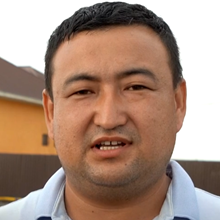Key Highlights
- The World Bank has supported the development of the Western Europe–Western China corridor in Kazakhstan since 2009, connecting approximately 5.5 million people living in the regions along the corridor and profoundly reshaping the economic landscape of the entire area.
- A World Bank survey revealed that 43% of respondents experienced better job and income opportunities due to the South-West Roads Project, while 93% noticed a higher quality of life post-project.
- Travel time along the corridor has been cut by approximately 67%, with travel speeds tripling from 25 km/h to 80 km/h, thanks to over 1,600 km of new high-quality roads.
- Upgrades to the Western Europe–Western China International Transit Corridor have led to a 35% reduction in road user costs, benefiting regions previously among the nation's poorest.
- The new infrastructure has provided quicker, safer access to essential services, contributing to a 62% reduction in maternal deaths from 2009 to 2019 in the areas served by the roads.
- The project has spurred regional development and curbed youth migration by creating over 50,000 construction jobs and 1,200 permanent road maintenance positions, with a focus on training, new qualifications, and equitable conditions for women, thus becoming a catalyst for social mobility in the region.
Challenge
Kazakhstan's strategic position as an economic bridge between China, Europe, and the Middle East has historically been underutilized due to poor connectivity. This has not only hindered the country’s ability to leverage its geographical advantage, but also led to pronounced regional disparities. Lack of efficient transport links contributed to unequal access to employment, education, healthcare, and various social and cultural opportunities. High transit costs—in terms of time, finances, and vehicle wear and tear—posed significant obstacles to international commerce and stymied local socio-economic progress, particularly in the southern regions. These challenges also disproportionately impacted women, who faced higher unemployment than men, and suffered from maternal mortality rates. Persistent underinvestment and limited institutional capacity within the road sector compounded these issues, which further impeded the development of a robust transportation infrastructure.
Approach
The World Bank supports the acceleration of sustainable economic growth and more equitable development in Kazakhstan through increased regional integration and national and international connectivity. World Bank investments and technical assistance supported the development of two modern road corridors, with a length of almost 2,000 kilometers (km). The South-West Road (SWRP) and East-West Road (EWRP) projects have helped to crowd in the investments needed for such a large-scale infrastructure project from other multilateral development banks (MDBs). The World Bank also supported the establishment of KazAvtoZhol, the national highway authority, and the National Center for Quality of Road Assets to ensure sustainable management of the new road assets. Other institutional components of the roads projects provided technical assistance to improve maintenance, safety standards and financial sustainability of the sector by the introduction of tolls.
Results
The road construction projects substantially altered the outlook of residents in the project region. In survey conducted by the World Bank when the project launched in 2009, a mere 20% percent felt optimistic about their future in the area. Yet by 2020, this number soared to 83%. The project created 50,000 new jobs in construction and provided over 1,200 permanent roles in road maintenance for residents, which contributed to this increasing optimism.





